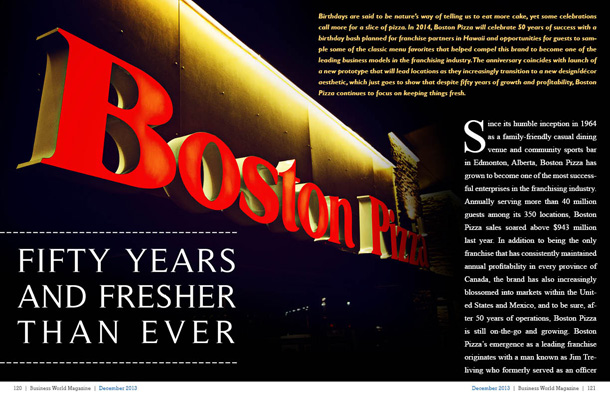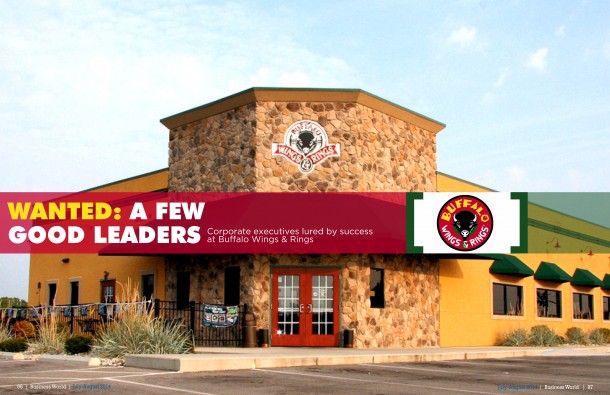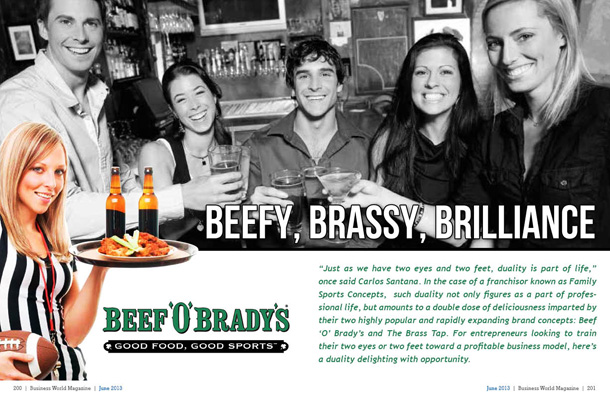
Aging Well and Staying Current
In the height of summer, there really isn’t a better way to quench your thirst then one of the many premium quality beers that Coopers Brewery offers. It is not just the physical ingredients that make Coopers Brewery so distinct it’s the history and craftsmanship involved in each stage of the brewing process. Within one year, they will be celebrating 150 years of history, Coopers is almost as old as Australia is, or older, depending on how you measure. Coopers is still owned and operated mostly by family members, but this isn’t as simple as it sounds. The Chairman and CEO are both Coopers, but descended from the two different wives of the founder. The original Coopers ale was developed as a beer tonic for Thomas Cooper’s first wife while she was ill, when he took a second wife he made sure that Cooper’s would remain a family business and include both branches of the family he started. With this special provision, Cooper’s has grown and flourished and is now under the proud control of Dr Tim Cooper, and Glenn Cooper who are both 5th generation Coopers.
A great history
It should be noted that Coopers operates under the pluralisation of the family name and not the possessive sense. This in itself should be a point of pride for the company, showing their unification rather than ownership. This family owned business showed its unification when in 2005 an unsolicited hostile takeover bid was tabled, with the shareholders rejecting it with over 93 per cent voting against the takeover. This act has truly cemented the idea of Coopers as a family business for shareholders and beer enthusiasts alike. Glenn Cooper recently sat down with Business World Australia, and told us a bit about what makes Coopers special, the interview left us all a little thirsty. Cooper began his career and education in computer sciences, becoming very successful at his first career. In 1990 he joined the family business and over the past 21 years has overseen the expansion of the Coopers product offerings to include some of their most successful lines that the company has ever seen including; Coopers Mild Ale, Coopers Dark Ale, Coopers Extra Strong Vintage Ale and Coopers Lager. “The company was started by my great-great-grandfather, and I always think this is interesting: he had 2 wives and 19 children, I usually finish off this story by saying that’s how good the beer is,” Glenn Cooper laughs. “The sons of Thomas Cooper created the format that still exists today, that the seats on the board are equally split between descendants of the first wife, and that’s where I come from, and I have a cousin Dr. Tim Cooper and he represents the pendants of the second wife.”
Glenn Cooper says that this division of shares means that no one family of Cooper can take over the company and has lent itself to the company’s long lasting stability.
Under their current leadership they have expanded their offerings to about 8 different varieties of ales. Glenn says that these selections vary from traditional ales to the more recent lagers and their low carb beers. Glenn still swears by the company’s pale ale, saying that “It’s a right proper drop when it is done properly.”
Small market, big results
As the third biggest brewery in Australia, their production is world-class as is their competition. Australia is in the unique position of being at the centre of many industries, and a hub of industrial activity. This means that although Coopers has the advantage of being able to export to Asia, but also suffers the impact of invading brands and beer culture. With 3.5 per cent of the beer market in Australia, they have focused on the beer cognisor, and the premium beer market. For their efforts they have received international and national recognition. Cooper says within the premium beer market they represent about 16-17 per cent of the total purchases in the Australian market.
Coopers knows that its competitors are the “mega-brewers” of the world, so Glenn Cooper has directed to company to focus on their highly successful premium offerings. He says that this area is simply the one area that bulk brewers can simply not compete with them in. “Our two major competitors in this market are Lion Nathan, who are now owned by Kirin Brewery Company, Ltd. in Japan, and Fosters, which are both big-big companies.”
What sets them apart is that they offer difference. In a market that is saturated by bland generic beers, Coopers offers real choice. “I continue to look at ways to make our products more innovative, and ales and pales ales are very different from what anyone else can offer. So being in the beer industry I would say we are in the specialist beer industry, and I want to make sure we can stay in that area.” One of the products Coopers has developed in order to cement their place within this market is their newly introduced low carb beer Coopers Clear. “That one has been a great competitor against Clear Blonde and Super Dry,” he says. What is a true difference in the way that Coopers conducts its business is that it has developed an enthusiastic culture around its beers. One of the examples of this is their home-brew kits that are available throughout the world. They provide everything that a home-brewer and micro-brewery would need to create their own versions of coopers, or their own specialty beers.
Bringing home the taste
“The home-brew really began in 1975, and it was sort of created out of desperation,” says Glenn. “This was before my time and Coopers was struggling with beer so they invented home-brew. They broke some technological barriers to do this, producing a ‘sterilized wort’ which was the basic ingredient to home brew. All you had to do after that was add some yeast and some sugar and away you went. That was the starting point for that line, and now we are the largest manufacturer of home-brew kits in the world,” he says. He says that this not only provided the company some much need cash at the time but it opened up a whole new business opportunity for them. “Malt extract, we provide in bulk to many food companies like Sanitarium and Mars,” the extract itself is used in the manufacturing process that these companies engage in.
World-class right at home
Coopers always does quite well at many of the international beer trade shows and award shows. Glenn says he is particularly proud of how well Best Extra Stout has done. “A few years ago our Best Extra Stout, became the grand champion of international beers in Australia. The stout is one of the very products that Coopers was founded on,” says Glenn. This means that Coopers has long been making products that have always been of high quality given that most of the recipes have changed very little.
“We always do very well in awards shows especially our Dark Ale and our Pale Ale. The other one that has received high accolades is our Vintage Ale- that’s our specialist ale, and we only make about 30,000 cases. Each year the brewers change the formula, so it has become our yearly special one-off ale,” says Glenn. Although they are only produced for one year they often get requests that they bring back a Vintage formula from specific years. “We have a lot of people who actually collect them, and part of the great thing about the Vintage Ale is that they last a long time so you can drink them quite a few years later,” he says. When asked which specialty formula has been the most popular Glenn jokingly states that it is always the most recent. “The people who love them always queue-up when the next one arrives,” he says. He calls them “celebratory beers”, and says that not only do consumers use them for special occasions, but he, himself, has thinks that every time he has a beer it is a bit of a personal event. “I always celebrate whenever I have a beer!”
Part of the flavour that a Coopers beer delivers is due to the fact that they use a secondary fermentation process right in the bottle, this means that the carbonation that a Coopers drinker enjoys is completely natural and cannot be replicated with forced carbonation methods.
It’s in the label
Glenn Cooper and Coopers Brewery have also been watching the developments in the market, and are interested in seeing where the craft-beer market is going. “We may expand into this market by making a craft-style beer because we are in a very good position to do so if the market looks promising,” he says. “We aren’t like the other companies who offer a proliferation of products, we are very careful about what we put the Coopers label on,” Glenn says. “Once we put our name on it, we want it to be a long term product, so we don’t do short term products.” The label promises a lot, and means a lot to all of the Coopers.
Smart Packaging
Speaking of labels Coopers has launched one of the most innovative contests the world has ever seen. Combining smart tagging, social media, AR Technology, three-dimensional imaging, iPhones and home computers, Coopers is creating their own version of a treasure hunt. Holding up a Coopers box to a home webcam will reveal a three-dimensional image of what prize they have won, the image is stable and will move and change its aspect with the movement of the box, which in itself is incredibly innovative. “Have you ever heard of augmented reality?” asks Glenn. “All you have to do is hold up this special tag up to a webcam on a home computer at the Coopers website, and then it will take you to a special Coopers application, there will be instant prizes, and the big prize is of course diamonds!” Glenn encourages everyone to check out the Coopers website for updates and contest rules.
Changing technology, not techniques
What has changed, of course, is the technology that goes into the brewing process. The techniques employed have remained unchanged; it is the tools that have changed. With computer controls, better cleaning process and monitoring, Coopers has been able to maintain constancy in batches as well as stopped losses due to contamination which occurred in early years. “Infection of batches is not an issue like it was many years ago,” says Glenn. The original brewery at Leabrook was unable to keep up with the growth that Coopers enjoyed in the mid-1990s, and in 2000, after 3 years of development Coopers completed its transfer to its new state-of-the-art brewery in Regency Park. “With all the new efficiencies and technology we have installed at this site it makes Coopers very environmentally friendly.” Part of this is Coopers’ focus on using green technologies in every stage of their production, from heat reclamation from the kettles, to having completely recyclable materials in their packaging.
The story of Coopers is one that Glenn likes to tell, and he will at every chance he gets. It is a story that people relate to, a strong family, a strong workforce and a strong history of delivering a drink that Australian’s can be proud to know came from here. “We have a story,” he says, “and it’s a story about our beer, our family and the people who drink our beer. Now the great thing about us is that the people who drink our beer have become very connected to us, and are very passionate about their Coopers. I think this gives us an advantage.” Sharing this story is just one way that Coopers has capitalised on their brand. The other is being very forward thinking when they are dealing with communication technology, social media, and the internet. They are one of the few companies that have embraced these technologies in a real a substantive way.
It is obvious that the Cooper family involvement in the business is a major contributor to its longevity and success.







